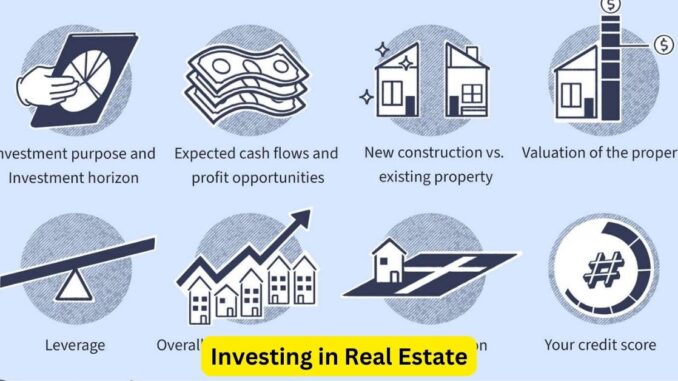
Investing in real estate can diversify your portfolio and generate passive income, but securing a mortgage for an investment property differs from obtaining a loan for a primary residence. Here’s a guide to navigate the unique aspects of mortgages for investment properties:
Different Mortgage Dynamics: Mortgages for investment properties, such as rental homes or multi-unit buildings, often have distinct terms compared to loans for primary residences. Lenders typically view these properties as riskier due to potential vacancy periods and the borrower’s intentions to generate income.
Higher Down Payment Requirements: Lenders usually require larger down payments for investment properties, typically ranging from 15% to 25% or more of the property’s purchase price. A higher down payment reduces the lender’s risk and demonstrates the investor’s commitment.
Interest Rates and Terms: Interest rates for investment property mortgages can be higher compared to those for primary residences. Investors might encounter rates about 0.5% to 0.75% higher than rates for owner-occupied homes. Additionally, loan terms might be shorter, typically around 15 or 20 years, compared to the more common 30-year terms for primary residences.
Rental Income Consideration: Lenders might factor in potential rental income when qualifying borrowers for an investment property loan. They might consider a portion of the rental income to help meet income requirements, thereby supporting loan approval.
Credit Score and Financial Stability: Maintaining a strong credit score is crucial when seeking financing for an investment property. Lenders assess the borrower’s financial stability and ability to manage multiple properties simultaneously.
Reserves and Cash Flow Analysis: Lenders may scrutinize the investor’s financial reserves and perform a cash flow analysis to ensure the property’s income covers expenses. They want assurance that the borrower can handle mortgage payments during vacancies or unexpected repairs.
Property Type and Use: The type of investment property can impact loan terms. Multi-unit properties or commercial real estate might have stricter lending criteria compared to single-family homes.
Diligent Research and Preparation: Thoroughly research lenders specializing in investment property loans and compare terms, interest rates, and requirements. Understand the specific rules and regulations governing investment property financing in your target area.
Mitigating Risks: Investing in real estate carries inherent risks. Consider diversifying your investments, conducting extensive due diligence on the property, and accounting for potential vacancy periods or unexpected expenses.
Consult Professionals: Engage with real estate agents, financial advisors, and mortgage specialists experienced in investment properties. Their insights can provide valuable guidance in navigating the complexities of financing for investment real estate.
Investing in real estate through mortgages for investment properties can be a lucrative venture when approached strategically. By understanding the unique lending dynamics, conducting thorough research, and seeking expert advice, investors can make informed decisions to optimize their real estate investment endeavors.
Leave a Reply